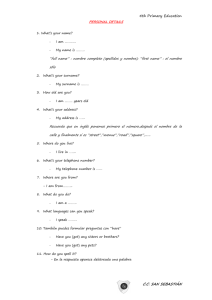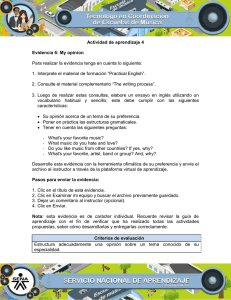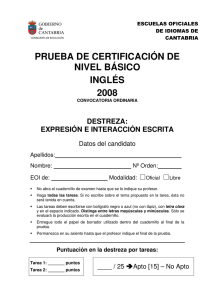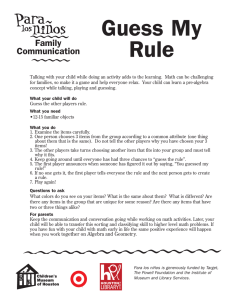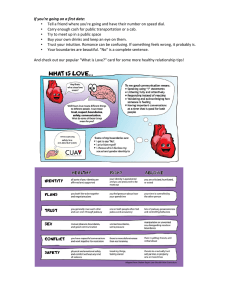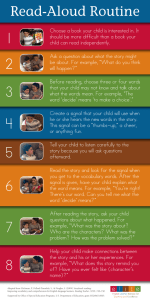Dear Parent or Guardian, Our class has just finished the fifth unit of
Anuncio
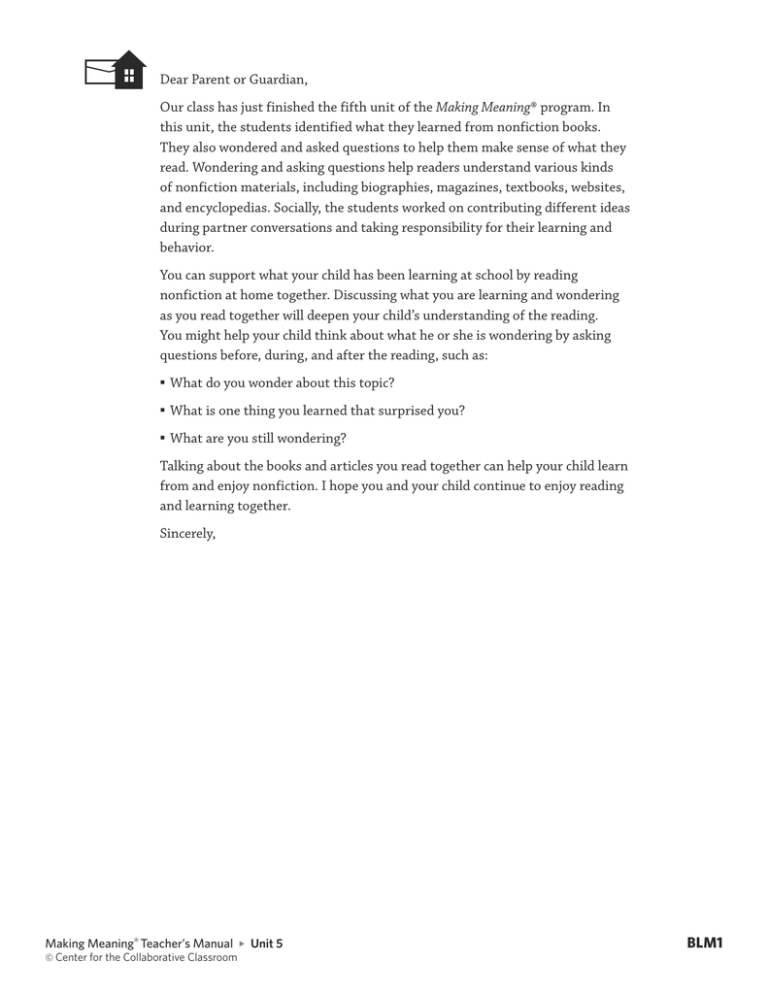
Dear Parent or Guardian, Our class has just finished the fifth unit of the Making Meaning® program. In this unit, the students identified what they learned from nonfiction books. They also wondered and asked questions to help them make sense of what they read. Wondering and asking questions help readers understand various kinds of nonfiction materials, including biographies, magazines, textbooks, websites, and encyclopedias. Socially, the students worked on contributing different ideas during partner conversations and taking responsibility for their learning and behavior. You can support what your child has been learning at school by reading nonfiction at home together. Discussing what you are learning and wondering as you read together will deepen your child’s understanding of the reading. You might help your child think about what he or she is wondering by asking questions before, during, and after the reading, such as: What do you wonder about this topic? •• What is one thing you learned that surprised you? •• What are you still wondering? •• Talking about the books and articles you read together can help your child learn from and enjoy nonfiction. I hope you and your child continue to enjoy reading and learning together. Sincerely, Making Meaning® Teacher’s Manual Unit 5 © Center for the Collaborative Classroom BLM1 Estimado padre de familia o tutor: Nuestra clase acaba de finalizar la quinta unidad del programa Making Meaning®. En esta unidad, los estudiantes identificaron lo que aprendieron de los libros de no ficción. También se hicieron preguntas y cuestionaron para hallarle el sentido a lo que leyeron. Hacerse preguntas y cuestionarse ayuda a los lectores a entender las distintas clases de materiales de no ficción, incluidas las biografías, revistas, libros de texto escolar, sitios web y enciclopedias. En el aspecto social, los estudiantes trabajaron aportando diferentes ideas durante las conversaciones con sus compañeros y asumiendo la responsabilidad por su aprendizaje y comportamiento. Usted puede apoyar lo que su hijo ha estado aprendiendo en la escuela al leer textos de no ficción juntos. Discutir sobre lo que se preguntan del texto y aprender sobre lo que leyeron ayudará a su hijo a profundizar en la comprensión del texto. Usted podría ayudar a su hijo a pensar sobre lo que se está preguntando al hacerle preguntas antes, durante y después de la lectura, tales como: ¿Qué te preguntas sobre este tema? •• ¿Qué cosa aprendiste que te llamó la atención? •• ¿Qué otras preguntas tienes sobre el tema? •• Hablar sobre los libros y artículos que leen juntos puede ayudarle a su hijo a aprender y a disfrutar los textos de no ficción. Espero que usted y su hijo continúen disfrutando de la lectura y el aprendizaje en compañía. Atentamente, Making Meaning® Teacher’s Manual Unit 5 © Center for the Collaborative Classroom BLM1
